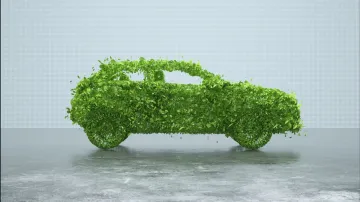We all will agree to the fact that charging an electronic device is time-consuming. For smartphones or other appliances, it usually takes around 15-20 minutes to 30 minutes to gather enough juice to last for a longer span. Over the period, tech players have been continuously working towards upgrading the charging speed for smartphones/tablets/laptops- to have enough power, and some have even introduced smartphones with superfast charging capabilities, which could charge a smartphone 15-20 minutes faster.
However, laptops and electric vehicles (EVs) are still in need to require more than 45 minutes to charge the machine. But have you ever imagined the technology advancing so much, that it charges the EVs in just 10 minutes.
This may look unbelievable, but an Indian-origin scientist has done it- as he developed a technology which is capable of charging a smartphone and EV in a few minutes.
Supercapacitor to revolutionize EV charging
Ankur Gupta, who is an Indian-origin researcher has discovered a breakthrough technology which could charge an electric vehicle rapidly. Gupta is working as an Assistant Professor of Chemical and Biological Engineering at Colorado Boulder University in the USA, has published his research in a journal of the National Academy of Sciences.
His journal has focused on the use of supercapacitors, which is capable of storing and delivering energy faster than ever.
Understanding Supercapacitors: How does it work?
In his research, Ankur Gupta explains that the charging process of a device's battery relies on the movement of ions (small charged particles) within a complex microscopic pore structure.
To store this energy efficiently, a high-capacity storage device like a supercapacitor could collect ions within its pores, which enables it to charge electronic devices at much faster speed, than the traditional batteries.
Benefits of supercapacitors in EVs
The implementation of supercapacitors in EV chargers could significantly reduce the charging times, making them even faster than the average time required to charge a smartphone. This advancement could further reduce the load on the power grid, as the rapid charging capability would work on minimizing the duration that EVs draw power.
Gupta’s research will further highlight his effort to enhance energy storage devices which will work in using his expertise in chemical engineering.
A boon for electric vehicles
The potential of supercapacitors in EV charging could transform the electric vehicle market. At present, one of the primary discouragements for prospective EV buyers is the long charging time and inadequate charging infrastructure.
This innovative technology could further address these concerns, by making EVs more appealing to consumers by reducing charging times drastically.
ALSO READ: Your smartphone battery is draining fast? Here are the reasons to check and how to fix it?
